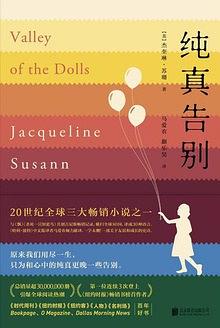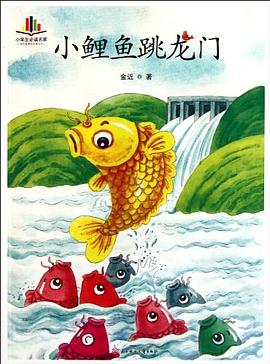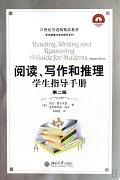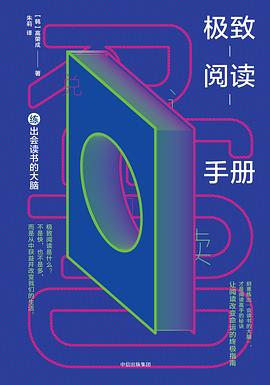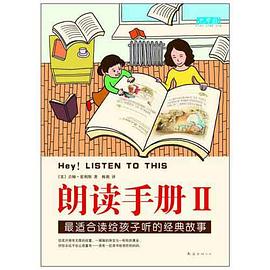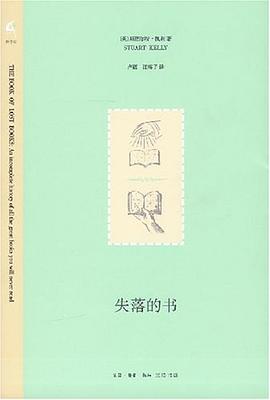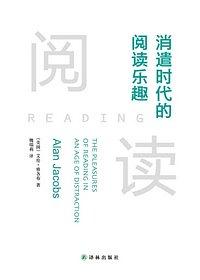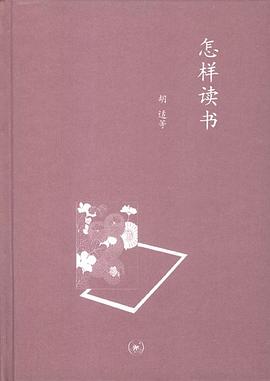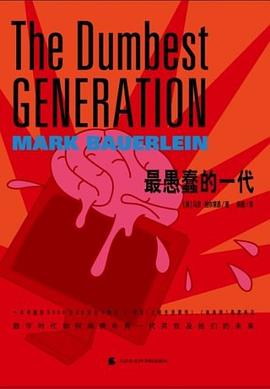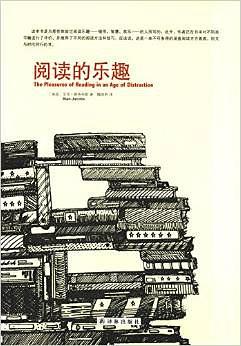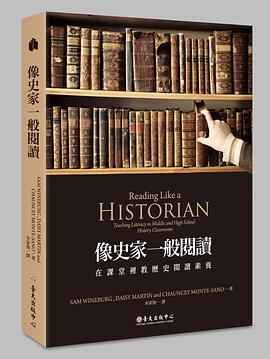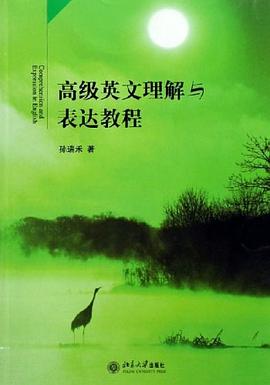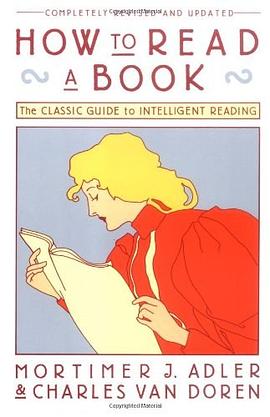

具体描述
How to Read a Book, originally published in 1940, has become a rare phenomenon, a living classic. It is the best and most successful guide to reading comprehension for the general reader. And now it has been completely rewritten and updated.
You are told about the various levels of reading and how to achieve them — from elementary reading, through systematic skimming and inspectional reading, to speed reading, you learn how to pigeonhole a book, X-ray it, extract the author's message, criticize. You are taught the different reading techniques for reading practical books, imaginative literature, plays, poetry, history, science and mathematics, philosophy and social science.
Finally, the authors offer a recommended reading list and supply reading tests whereby you can measure your own progress in reading skills, comprehension and speed.
There are over 190,000 copies in print of this classic guide to getting the most from your reading.
作者简介
Mortimer J. Adler was Chairman of the Board of the Encyclopaedia Britannica, Director of the Institute for Philosophical Research, and Honorary Trustee of the Aspen Institute. He authored more than fifty books.
目录信息
Preface
PART ONE
THE DIMENSIONS OF READING
1. The Activity and Art of Reading
Active Reading
The Goals of Reading: Reading for Information and Reading for Understanding
Reading as Learning: The Difference Between Learning by Instruction and Learning by Discovery
Present and Absent Teachers
2. The Levels of Reading
3. The First Level of Reading: Elementary Reading
Stages of Learning to Read
Stages and Levels
Higher Levels of Reading and Higher Education
Reading and the Democratic Ideal of Education
4. The Second Level of Reading: Inspectional Reading
Inspectional Reading I Systematic Skimming or Prereading
Inspectional Reading II: Superficial Reading
On Reading Speeds
Fixations and Regressions
The Problem of Comprehension
Summary of Inspectional Reading
5. How to Be a Demanding Reader
The Essence of Active Reading: The Four Basic Questions a Reader Asks
How to Make a Book Your Own
The Three Kinds of Note-making
Forming the Habit of Reading
From Many Rules to One Habit
PART TWO
THE THIRD LEVEL OF READING: ANALYTICAL READING
6. Pigeonholing a Book
The Importance of Classifying Books
What You Can Learn from the Title of a Book
Practical vs. Theoretical Books
Kinds of Theoretical Books
7. X-raying a Book
Of Plots and Plans: Stating the Unity of a Book
Mastering the Multiplicity: The Art of Outlining a Book
The Reciprocal Arts of Reading and Writing
Discovering the Author's Intentions
The First Stage of Analytical Reading
8. Coming to Terms with an Author
Words vs. Terms
Finding the Key Words
Technical Words and Special Vocabularies
Finding the Meanings
9. Determining an Author's Message
Sentences vs. Propositions
Finding the Key Sentences
Finding the Propositions
Finding the Arguments
Finding the Solutions
The Second Stage of Analytical Reading
10. Criticizing a Book Fairly
Teachability as a Virtue
The Role of Rhetoric
The Importance of Suspending Judgment
The Importance of Avoiding Contentiousness
On the Resolution of Disagreements
11. Agreeing or Disagreeing with an Author
Prejudice and Judgment
Judging the Author's Soundness
Judging the Author's Completeness
The Third Stage of Analytical Reading
12. Aids to Reading
The Role of Relevant Experience
Other Books as Extrinsic Aids to Reading
How to Use Commentaries and Abstracts
How to Use Reference Books
How to Use a Dictionary
How to Use an Encyclopedia
PART THREE
APPROACHES TO DIFFERENT KINDS OF READING MATTER
13. How to Read Practical Books
The Two Kinds of Practical Books
The Role of Persuasion
What Does Agreement Entail in the Case of a Practical Book?
14. How to Read Imaginative Literature
How Not to Read Imaginative Literature
General Rules for Reading Imaginative Literature
15. Suggestions for Reading Stories, Plays, and Poems
How to Read Stories
A Note About Epics
How to Read Plays
A Note About Tragedy
How to Read Lyric Poetry
16. How to Read History
The Elusiveness of Historical Facts
Theories of History
The Universal in History
Questions to Ask of a Historical Book
How to Read Biography and Autobiography
How to Read About Current Events
A Note on Digests
17. How to Read Science and Mathematics
Understanding the Scientific Enterprise
Suggestions for Reading Classical Scientific Books
Facing the Problem of Mathematics
Handling the Mathematics in Scientific Books
A Note on Popular Science
18. How to Read Philosophy
The Questions Philosophers Ask
Modern Philosophy and the Great Tradition
On Philosophical Method
On Philosophical Styles
Hints for Reading Philosophy
On Making Up Your Own Mind
A Note on Theology
How to Read "Canonical" Books
19. How to Read Social Science
What Is Social Science?
The Apparent Ease of Reading Social Science
Difficulties of Reading Social Science
Reading Social Science Literature
PART FOUR
THE ULTIMATE GOALS OF READING
20. The Fourth Level of Reading: Syntopical Reading
The Role of Inspection in Syntopical Reading
The Five Steps in Syntopical Reading
The Need for Objectivity
An Example of an Exercise in Syntopical Reading: The Idea of Progress
The Syntopicon and How to Use It
On the Principles That Underlie Syntopical Reading
Summary of Syntopical Reading
21. Reading and the Growth of the Mind
What Good Books Can Do for Us
The Pyramid of Books
The Life and Growth of the Mind
Appendix A. A Recommended Reading List
Appendix B. Exercises and Tests at the Four Levels of Reading
Index
· · · · · · (收起)
读后感
当然前提是如果10年后我不是独身。我会给我的孩子推荐这本书,在他们接受国家教育之前。 该书第一版是1940年,60多年过去了,至今仍在Amazon排行2000位。作为一本指导你如何阅读的工具书而不是传统意义上的经典,实属难能可贵。 古云:开卷有益。本书却教导你开卷未必有益。 书...
评分当然前提是如果10年后我不是独身。我会给我的孩子推荐这本书,在他们接受国家教育之前。 该书第一版是1940年,60多年过去了,至今仍在Amazon排行2000位。作为一本指导你如何阅读的工具书而不是传统意义上的经典,实属难能可贵。 古云:开卷有益。本书却教导你开卷未必有益。 书...
评分 评分既然阅读有主动、被动之对比,那么我们的目标就是:第一提醒读者,阅读可以是多少主动的事。第二要提出的是,阅读越主动,效果越好,这个读者比另一个读者更主动一些,他在阅读世界里面的探索能力就更强一些,收获更多一些,因而也就更高明一些,读者对他自己,以及自己面前的...
用户评价
需要二刷
评分经典!写的有点太罗嗦了,而且还可以更先进一点。
评分读了很多年的书,赞同书中大的原则。不过,读书这个事,真的很难一概而论。
评分算是一本修炼阅读内力的秘笈,不过有些地方越是言之凿凿,越是真不能至。娱情乐意,求信新知,炼心明智,三者殊无高下,淘沙见金,皆成经典。
评分其实就讲了精读的方法。这个咱在多年的应试教育中已经默默的自我摸索出来了。比较悲催的是在课外阅读中我从来不精读。我比较喜欢好读书不求甚解。 顺便发现这经典读起来得多么悲催的累啊
相关图书
本站所有内容均为互联网搜索引擎提供的公开搜索信息,本站不存储任何数据与内容,任何内容与数据均与本站无关,如有需要请联系相关搜索引擎包括但不限于百度,google,bing,sogou 等
© 2025 book.quotespace.org All Rights Reserved. 小美书屋 版权所有

